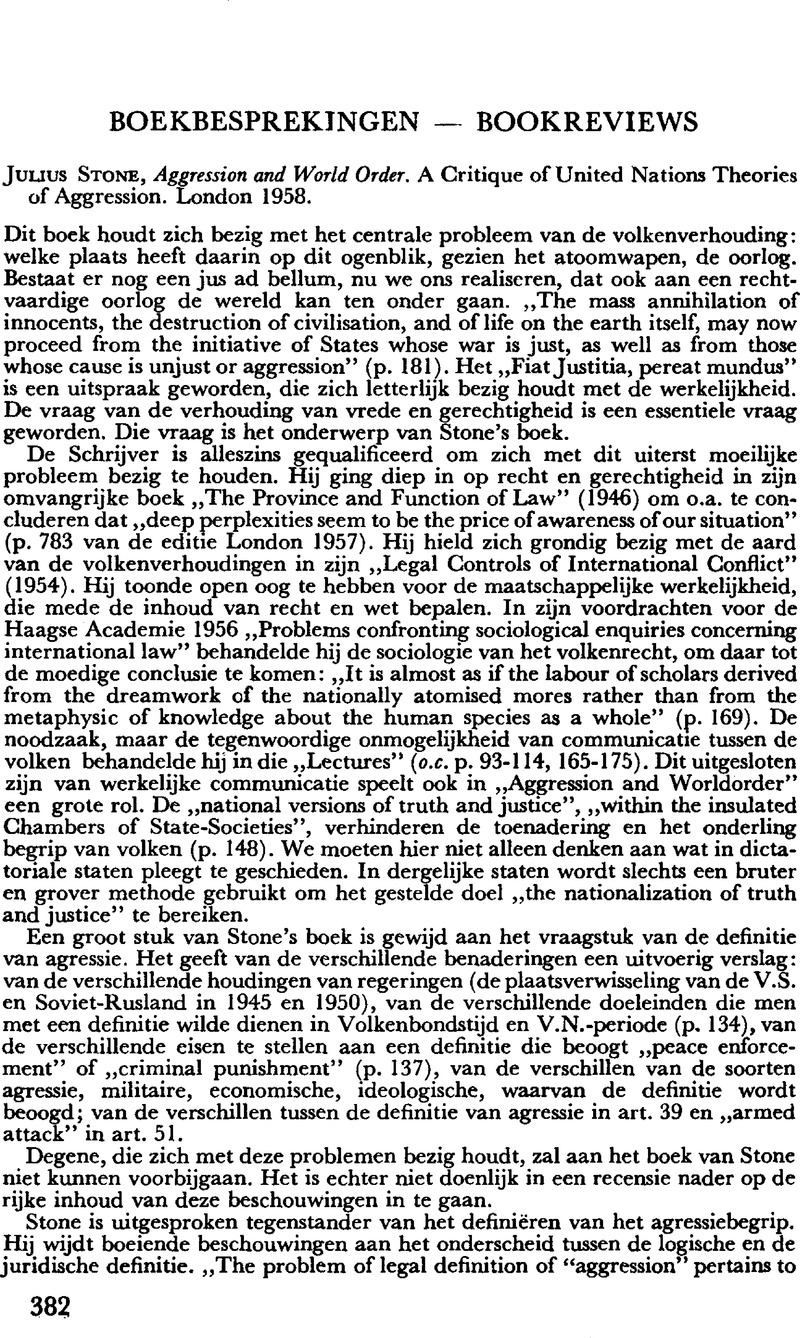No CrossRef data available.
Published online by Cambridge University Press: 21 May 2009

page 383 note 1 Verdediging van deze extreme interpretatie in mijn “The Question of Denning Aggression”, in Symbolae Verzijl, den Haag 1958, p. 314–336.Google Scholar
page 383 note 2 En juist als bevestiging van wat de duidelijke woorden van een verdrag bieden worden de “travaux préparatoires” door de internationale jurisprudentie gehanteerd, zie George Schwarzenberger, International Law, Third edition, London 1957, Vol. I, p. 515–516.Google Scholar
page 384 note 1 Welke “travaux” bedoeld zijn wordt niet aangegeven. In de UNCIO-documents heb ik ze onder de artt. 24 en 51 bepaald niet kunnen vinden.
page 385 note 1 Problems confronting sociological enquiries concerning international law, o.c., p. 93.
page 385 note 2 Het U.N. Report of the Special Committee on the Problem of Hungary, New York 1957, constateert in zijn conclusie (p. 138): “Obscurity surrounds the invitation alleged to have been issued by the Hungarian Government to the Soviet Authorities to assist in quelling the uprising by force.” “Until further information comes to light, it would be wise to suspend judgment as to whether such an invitation was issued at all.” Maar zou onze verontwaardiging en afkeur kleiner zijn als de Communistische puppet-regering inderdaad om hulp had gevraagd?
page 386 note 1 Mill, John Stuart, A Few Words about Intervention, in: Dissertations and Discussions. London 1867, Vol. III p. 153–178, p. 172.Google Scholar
page 386 note 2 En Stone wijst hier terecht op het feit, dat de grondstoffen, die het Westen behoeft en waarop het bepaalde rechten bedongen heeft, liggen in het Afro-Aziatische en Zuid-Amerikaanse deel van de wereld. En dat daarover door de Afro-Aziatische en Zuid-Amerikaanse landen kan beschikt worden door nationale wetgeving. Rechtsschennis kan hier geschieden zonder geweld, reactie erop afge-wezen worden met een beroep op “domestic jurisdiction”. “In this sense it seems clear that the African and Asian and Central and South American States now hold within the mercy of their territorial domain more important interests of the Western Powers than vice versa. Once it is assumed that the use of force is excluded, these former States, within the extent of their territorial domain (and despite the reminiscence of an earlier phase of history), rise to a position of superior power” (p. 166).
page 386 note 3 Mill, J. S., The Contest of America, in Dissertations and Discussions, London 1876, Vol. III, p. 179–205, p. 204.Google Scholar
page 387 note 1 Alexis de Tocqueville, Correspondance Anglaise, Oeuvres Complètes Tome VI, 5e éd. Paris 1954, p. 335.